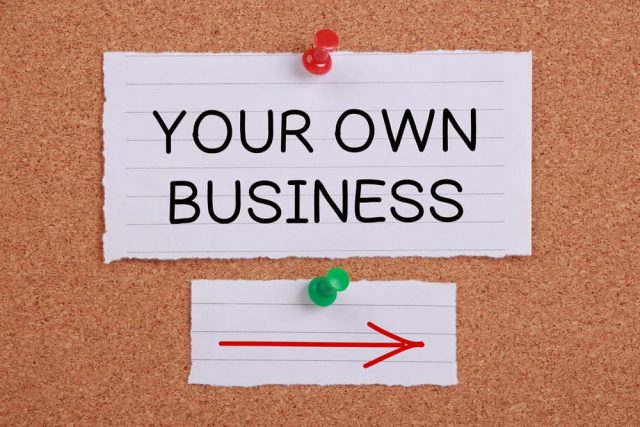Introduction
There are many factors to consider when you setup your Ltd Company, most of which revolve around how you will remunerate yourself through the company. This guide will help to prepare yourself as best possible for what lies ahead.
Unless you are a qualified accountant then the answer to this question is most definitely yes.
While accountants don’t come cheap, they are able to help with the Ltd Company formation, offer advice on a business bank account setup, devise a plan to extract the profit from your company, and complete all required paperwork on your behalf.
It is important to note that your Accountant is JUST an agent acting on behalf of your company, they are not responsible for the running of your company, nor are they liable for your tax – that is your responsibility so ensure you have a clear understanding of what is required to run a Ltd Company. This guide will help.
Choosing an Accountant
Assuming you do need an accountant the first step is to choose one suitable.
While it is important to note that you are responsible for the running and taxation of your Ltd Company, your Accountants will play a huge part in assisting you with the running of it, therefore it is imperative that you find an accountant that suits the needs of your business.
The first question to ask yourself is whether you want to meet up with your accountant from time-to-time or whether online/telephone support will suffice. If you do wish to deal with an accountant in person now and again this will remove the majority of contractor-specific online accountants.
We would always recommend that, if possible, you choose an accountant that has been recommended by somebody that you trust – no amount of reviews or promises can beat a good reference from somebody that you trust.
If a recommendation isn’t possible then we would advise you to put together a shortlist of three or four and contact them all, before deciding which is best for you.
Obviously the fee charged will play a big part in your decision. Make sure that the fees quoted cover all of the services required over the course of the year. Also ensure that they are regulated by a professional body and that there is no bad ‘press’ about them.
You can setup a company online for a very small charge or (generally) pay a little extra for your new Accountants to do this for you.
You will need to decide on the name of the company, while this may not seem very important at this stage, you need to bear in mind that clients will use this to recognise you – you will look to build a reputable brand which, ideally, will give an indication of your line of work.
Unfortunately a lot of generic names relating to IT contracting will be taken and no two companies can have the same name.
Business Insurance
A lot can go wrong when you are running your own company, therefore insurance is required. Some is mandatory, some isn’t.
Your company is likely to require the following insurances:
- Employers Liability Insurance
- Public Liability Insurance
- Professional Indemnity Insurance
Further detail on these can be found in the Insurance section.
Salary
As a Ltd Company Director you have full discretion over the salary that you take.
Most contractors will take a low salary and then withdraw dividends from the company.
The most tax-efficient salary to pay yourself is £8,064 per annum as this results in no income tax or national insurance.
A lot of contractors will pay themselves an £11,000 salary per annum as this brings a national insurance liability of £751.34 but no income tax.
This is something you should discuss with your accountant.
Company Secretary
While a company secretary has not been a requirement of a Ltd Company since 2008, many contractors do elect to hire a secretary to perform the administrative duties required.
Additional Shareholder
You have the option to give a non-working spouse/partner a shareholding in the business. HMRC did challenge this setup, however the Arctic Systems case went in the taxpayers’ favour.
Many contractors will pay the shareholder a salary and then dividends up to the high rate tax bracket, this takes full advantage of the shareholders tax status.
Flat-Rate VAT
The amount of VAT a business pays or claims back from HM Revenue and Customs (HMRC) is usually the difference between the VAT charged by the business to customers and the VAT the business pays on their own purchases.
With the Flat Rate Scheme:
- you pay a fixed rate of VATto HMRC
- you keep the difference between what you charge your customers and pay to HMRC
- you can’t reclaim the VAT on your purchases – except for certain capital assets over £2,000
To join the scheme your VAT turnover must be £150,000 or less (excluding VAT), and you must apply to HMRC.
The VAT flat rate is a percentage of your ‘flat rate turnover’.
Flat rate turnover is different from standard VAT turnover. For example, as well as business income (eg from sales), it includes the VAT paid on that income.
Example: You bill a client for £1,000, adding VAT at 20% to make £1,200 in total.
You’re an IT consultant, so the VAT flat rate for your business is 14.5%.
Your flat rate payment will be 14.5% of £1,200, or £174.
The VAT flat rate you use depends on your business type. If the rate changes, you must apply the new rate from the date it changes.
If you’re in your first year as a VAT-registered business, reduce the VAT flat rate by 1%. The reduced rate lasts until the day before your registration anniversary.
Most contractors register as either a Management Consultancy (14%) or IT Consultancy (14.5%). For a full list of the rates please use this link: https://www.gov.uk/vat-flat-rate-scheme/how-much-you-pay.
Expenses
Please note that you should only claim expenses through your Ltd Company if you are deemed outside of IR35.
Your business will have various running costs. You can deduct some of these costs to work out your taxable profit as long as they’re allowable expenses.
If, for example, your turnover is £40,000, and you claim £10,000 in allowable expenses. You only pay tax on the remaining £30,000 – known as your taxable profit.
Allowable expenses don’t include money taken from your business to pay for private purchases.
The key rule when considering expenses is that they must be ‘wholly and exclusively for the purpose of business’.
Check out our guide to allowable expenses and the categories that they fall within.
Corporation Tax
20% Corporation Tax is due on all gross profit.
This will drop to 19% for the financial year beginning on 1st April 2017 and then drop to 17% for the financial year beginning on 1st April 2020.
Dividends
Dividends are the most popular way to extract net profit from a company however, like expenses, they can only be used if you are deemed outside of IR35.
The first £5,000 drawn by a shareholder is dividend tax free.
The next £27,000 (up to £32,000) is taxed at 7.5%.
The next £118,000 (up to £150,000) is taxed at 32.5%.
Anything above £150,000 is taxed at 38.1%.









